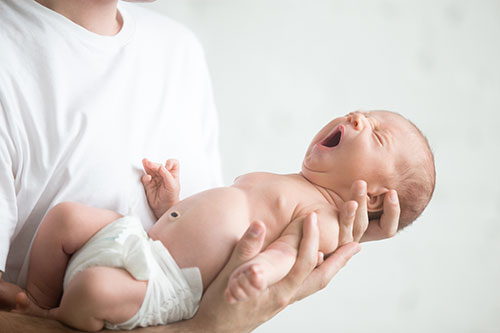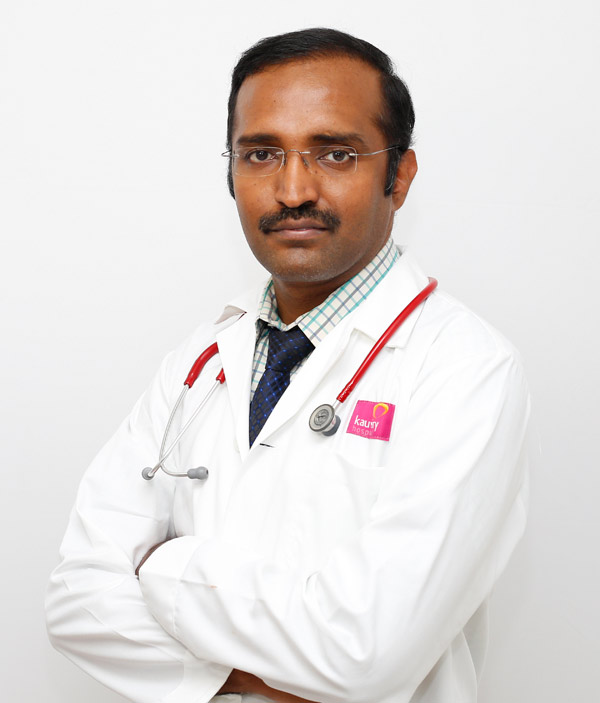FAQs on Newborn Care

What things should I carry to the hospital for the baby when I get admitted for delivery?
Things needed for the baby should be packed and kept ready at least a month before the expected date of delivery. Soft clothes with woolens and blankets to be kept ready which have been washed at least once. Front opening clothes are preferred. Carry socks, caps, mittens, towels, sheets and diapers. Both cloth and disposable diapers can be used. Soft cotton clothes or wipes should also be kept for cleaning and sponging purpose.
How to prepare our home for baby arrival?
Room should be warm, well ventilated and light should not be bright enough and comfortable for the mother-baby duo. The room should be thoroughly cleaned before the arrival of the baby. Wet mopping or vacuum cleaning is preferred. Pest control measures should be undertaken.
Keep the mother-baby bed away from window and door and also not directly under fan or in front of air cooler. During summer ensure that temperature is set at least 25 degrees Celsius or above if using an air conditioner and the baby is clothed adequately with 2 to 3 layers of clothing, cap, socks and mittens provided the baby is comfortable. In winter keep the room warm with radiant heater if required.
Make room for keeping baby’s belongings, easily reachable for mother.
Arrange for assistance in the form of family members or domestic help to allow the mother to take care of the baby.
When does baby pass his/her first stool and urine after birth? How many times should my baby pass urine and stool in 24-hour time period? Which diaper is suitable for babies?
Your baby may take up to 48 hours to pass his/her first stool but most will have a meconium stool (black or greenish-black color) within 24 hours. Baby will pass urine for the first time with in 12 to 24 hours after birth. For the first 3 days baby may only urinate 2 to 3 times in 24 hours, but this will increase to 7 to 8 times in 24 hours by 1 week of life. Stool becomes looser in consistency and then slowly changes to yellow seedy stools after the first few days. Most babies usually pass stools several times a day. Both cloth and disposable diapers can be used in newborn babies. Diapers may need to be changed every 3-4 hours and barrier creams can be applied as a routine to prevent diaper rash.
Where can I put my baby to sleep? Does mother-baby duo share the same bed? What is the sleep pattern of my baby in the initial days after birth?
The bed of the baby should be clean, dust-free, and the mattress should be firm, not fluffy. Place your baby on her back to avoid SIDS (sudden infant death syndrome). Cover the mattress with the snuggly fitting clean sheet.
If mother is comfortable, there is no need to use a separate cot/crib/bassinet for the baby. Its better that the mother-baby duo shares the same bed. It helps in keeping the baby warm and breastfeeding becomes easier for the mother with better emotional bonding.
Generally, newborns sleep for a total of about 8-9 hours in the daytime and about 8 hours at night. The sleep cycles are shorter than adults and they tend to wake every 40 minutes in both day and night. Recognizing signs of sleep readiness like yawning, fussing, crying or becoming quiet and providing the right environment for safe and comfortable sleep is of utmost importance in helping your baby sleep.
When can I bath my baby? How to give sponge bath to my baby? How should I take care of baby’s umbilical cord?
If your baby is healthy and weighs > 2.5 kg first bath can be given after discharge once the umbilical cord gets separated. In the hospital, you can sponge the baby daily using a soft cloth/towel and warm water. Clean the baby gently especially the folds in the body like arm pits, neck and genital area. Once the umbilical cord gets separated you can give bath to the baby in a closed room with mild baby bathing bar and warm water. Make sure that the baby’s head and body are well supported. The baby should be cleaned from head to toe then to wipe immediately with a soft towel and dress the baby. Clothes can be prewarmed in front of heater if required in winter season. The frequency of bathing will depend on weather and can be from a daily bath in summer to once in 2-3 days in winter.
Nothing should be applied on the cord and the practice of applying oil, gentian violet paint, ointments, antibiotic powder or spirit is strongly discouraged. Dry and clean cord care is advisable.
How to take care of eyes of the baby? Can I apply kajal/kohl?
You should clean the eyes of your baby once a day by using a soft cloth/cotton swab soaked in warm water. Use separate swab for each eye and wipe from the inner corner to the outer corner of the eye. Eyes should be cleaned more often if they are sticky or baby has some discharge. Nothing should be applied to the eyes. Traditional practice of applying kajal may lead to infection and injury.
Is it normal for the baby to have jaundice in the first few days after birth?
Yes, it is normal for newborns to have some jaundice causing yellowish discoloration of eyes and skin. However, some babies can have excessive jaundice for the following reasons – incompatibility between the mothers and baby’s blood groups, preterm babies who are born < 37 weeks or before, babies that are born with low birth weight < 2.5 kg and babies not breastfeeding well. Your doctor may check for predischarge bilirubin levels and if required, again when you go for a checkup with the baby.
If you are concerned about the yellowish discoloration of eyes and skin – especially if there is a yellowish discoloration of palms and soles, or the baby is not feeding well, is sleepy or irritable – visit your doctor for a blood test to determine the severity of jaundice. High bilirubin levels can usually be treated by keeping the baby under a special blue light called phototherapy.
What are the signs of illness for which I should visit my doctor (Neonatologist/pediatrician) immediately during the first 3 days of life?
For a newborn baby in the first month of life, these should be the signs to visit your doctor immediately
- Baby is not feeding well and not passed urine at least once in the first 24 hours, two diapers with urine on 2nd day and three diapers of urine on 3rd day.
- Not passing of stool(meconium) even after the first 48 hours of life.
- Baby is very sleepy and not waking up or demanding for feeds every 2-4 hours.
- Baby has a fever with a temperature >100.4℉ or 38 ℃; or if the baby is too cold with a temperature of <36 ℃.
- Baby is having fast breathing or troubled breathing or excessive crying or feed refusal
- Bluish discoloration around the baby’s lips.
- If you notice a severe skin rash with blisters, red and warm skin swelling or pus.
- Foul smelling discharge from the umbilicus with redness around the umbilicus.
- Baby has excessive vomiting of feeds, especially if the vomit contains a dark green liquid called bile or if the baby’s belly appears swollen.
Should we restrict visitors at home?
There are bound to be visitors and friends as expected visiting your home to share the happiness with the arrival of baby. They can be allowed to cuddle the baby after they have washed their hands. People suffering from respiratory, intestinal and skin infections should not hold the baby. This should not interfere with baby’s feeding and you should have enough privacy to be able to breastfeed the baby, whenever he/she is hungry.
Can women breastfeed during COVID-19 Times?
According to WHO, COVID-19 does not transmit through breastmilk. WHO and UNICEF recommend breastfeeding within first hour of birth by COVID-19 suspected or positive mothers.
What are the precautions to be taken while caring for your newborn in hospital and home to prevent transmission to the infant if you have COVID -19?
Wash your hands with soap and water for at least 40 seconds before holding or caring for your baby. If soap and water are not available, use a hand sanitizer with at least 60 percent alcohol.
Wear a mask when with in 6 feet of your baby.
Keep your baby more than 6 feet away from you as much as possible.
Routinely clean and disinfect surfaces that mothers have touched.
When is it safe to end isolation and take extra precautions if you have COVID -19?
- If u had symptoms, it is safe to end your isolation after
- 10 days since your symptoms first appeared
- 24 hours with no fever without fever reducing medications
- Your other symptoms of COVID -19 are improving
If u never had symptoms, it is safe to end your isolation 10 days after the date of your first positive COVID-19 test.
After your isolation ends, you should still wash your hands before caring for your baby, but you don’t need to take the other extra precautions.

Dr. Karthik Thiagarajan
Consultant Paediatrician and Neonatologist
Kauvery Hospital Chennai

